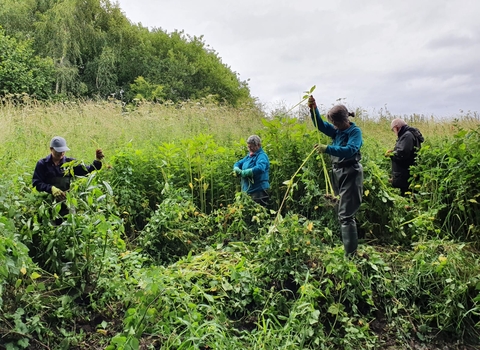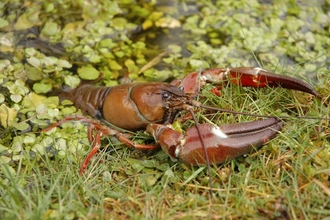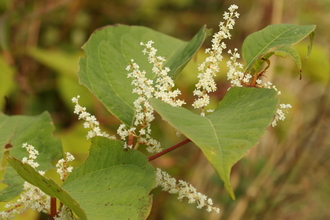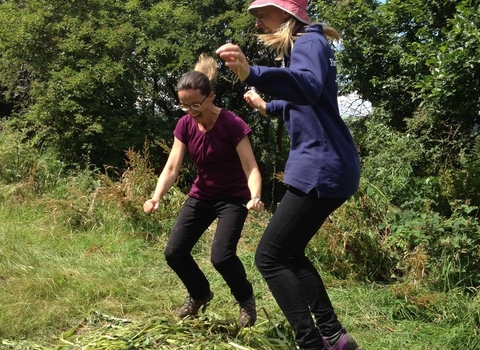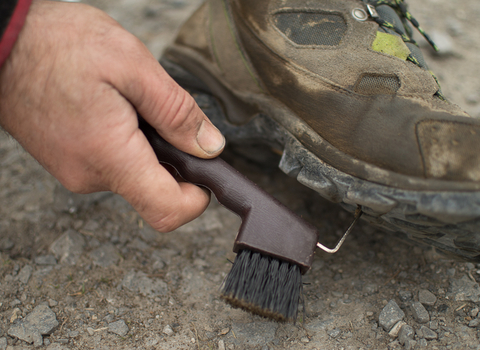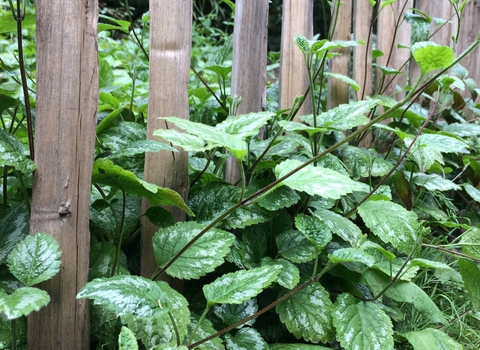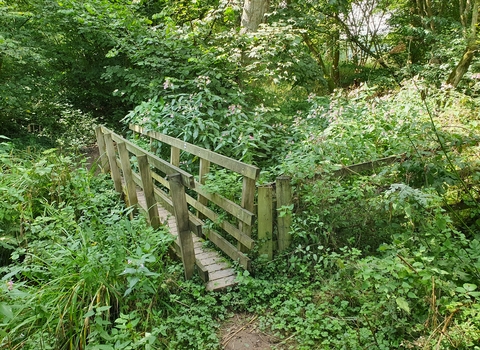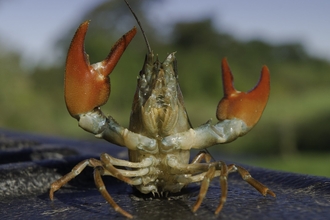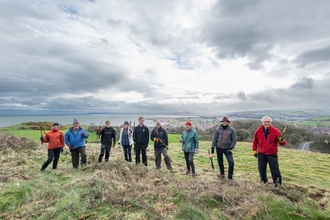What are invasive non-native species (INNS)?
INNS have been introduced by humans, intentionally or unintentionally, beyond their natural range. Acknowledged as one of the top five drivers of biodiversity loss globally, their spread threatens the survival of our native species, and can cause damage to our environment, economy, our health and the way we live.
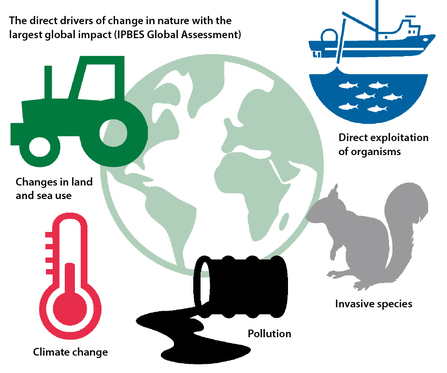
Direct drivers of change in nature with the largest global impact (IPBES Global Assessment) ©NWWT
Why is action important?
We are living through a loss of nature emergency. Wales is one of the most nature depleted countries in the world, and much of our native wildlife is currently struggling (with one in seven species facing extinction and more than 40% in decline).
We cannot underestimate the threat INNS pose to ecosystem resilience.
INNS are a threat because they:
- Prey upon native species
- Outcompete native species for resources such as space, light, food and water
- Carry new diseases
- Hybridise, this is where an invasive species breeds with closely related native species and changes their 'genetic character'
INNS also have economic impacts, affecting buildings, agricultural and forest productivity, damaging crops and soil health. They are estimated to cost Wales £125 million per year, a cost which is likely to be increasing.
What can you do?
Here at the North Wales Wildlife Trust, we’re making a concerted effort to protect nature from INNS (and achieve 30by30 to assist natures recover). But we need your help! Here’s a few ways that you can help tackle INNS:
Become a citizen scientist by finding and recording invasive species. There is information on current alert species and how to report them here.
What are we doing at NWWT?
There is a collective effort at the North Wales Wildlife Trust to reduce the impact of INNS on the natural environment. This includes several projects focusing on different approaches and different parts of North Wales and beyond. Find further information below.

